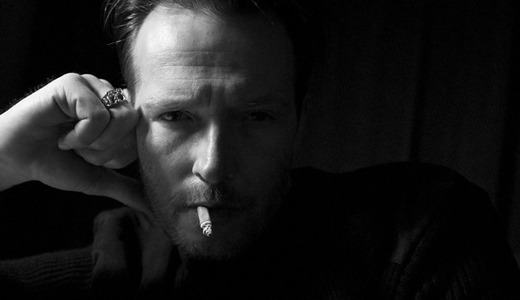When celebrities die tragic, premature deaths due to addiction and excess, popular culture has a way of lionizing them as something akin to martyred heroes. From Marilyn Monroe to Jim Morrison, Elvis Presley to Kurt Cobain, Corey Monteith to Heath Ledger to Philip Seymour Hoffman, the sad story is so sadly similar: a blazing life full of overflowing talent cut short by metaphorical demons that could not, ultimately, be mastered by these and so many other stars.
And we are sad of course. But in the attempt to think the best of these fallen stars, a romanticization of their addiction sometimes creeps in at the margins. “Well, he was an artist,” we might say. Or we trot out the cliché that “She was a great performer because of the great darkness inside of her.” It’s as if we almost believe that great “art” isn’t possible unless those creating it are dabbling with madness. It’s just part of the Faustian artistic deal.
In the wake of the death of former Stone Temple Pilots lead singer Scott Weiland last week, one of his ex-wives has something to say about our tendencies to romanticize, to make martyrs of stars who succumb thusly to addiction.
Mary Forsberg Weiland penned a letter, written with the aid of her and Scott’s two children, Noah (15) and Lucy (13) after news of Weiland’s death broke. Published in Rolling Stone, the letter pours a bucket of ice water on all those clichés, asking us to think more clearly about the damage done by addicted celebrity parents … and to think more clearly about the entertainment industry that’s more than willing to exploit stars who should’ve gotten out and gotten real help years before.
Forsberg Weiland begins,
December 3rd, 2015 is not the day Scott Weiland died. It is the official day the public will use to mourn him, and it was the last day he could be propped up in front of a microphone for the financial benefit or enjoyment of others. The outpouring of condolences and prayers offered to our children, Noah and Lucy, has been overwhelming, appreciated and even comforting. But the truth is, like so many other kids, they lost their father years ago. What they truly lost on December 3rd was hope.
We don’t want to downplay Scott’s amazing talent, presence or his ability to light up any stage with brilliant electricity. So many people have been gracious enough to praise his gift. The music is here to stay. But at some point, someone needs to step up and point out that yes, this will happen again—because as a society we almost encourage it. We read awful show reviews, watch videos of artists falling down, unable to recall their lyrics streaming on a teleprompter just a few feet away. And then we click ‘add to cart’ because what actually belongs in a hospital is now considered art.
Elsewhere in the heartbreaking letter, she talks about how hard she worked to minimize the effects of her husband’s addiction on their children.
Even after Scott and I split up, I spent countless hours trying to calm his paranoid fits, pushing him into the shower and filling him with coffee, just so that I could drop him into the audience at Noah’s talent show, or Lucy’s musical. Those short encounters were my attempts at giving the kids a feeling of normalcy with their dad. But anything longer would often turn into something scary and uncomfortable for them.
Forsberg Weiland concludes by challenging our culture to let go of the knee-jerk tendency to treat deaths like Scott’s romantically, but to deal with it soberly instead.
Noah and Lucy never sought perfection from their dad. They just kept hoping for a little effort. If you’re a parent not giving your best effort, all anyone asks is that you try just a little harder and don’t give up. Progress, not perfection, is what your children are praying for. Our hope for Scott has died, but there is still hope for others. Let’s choose to make this the first time we don’t glorify this tragedy with talk of rock and roll and the demons that, by the way, don’t have to come with it. Skip the depressing T-shirt with 1967-2015 on it—use the money to take a kid to a ballgame or out for ice cream.
Wow.
I’m challenged by Mary Forsberg Weiland’s words here. Not because I’m an addict or a rock star. By God’s grace, I’ll never be the former. And I’m pretty sure the window closed a long time ago (or never opened!) on becoming the latter.
But I am a parent of three children. And sometimes I do get too self-absorbed in my stuff—whether that’s work, my desire to watch the Broncos lose in peace and quiet, my hobbies, or my desire to just have “a little downtime, please!”
Sometimes I might need a real break. But more often, I need to choose to pull out of my own self-absorption to meet the wants and needs of my family. Like Forsberg Weiland says, I don’t have to be perfect. But I think there’s always room for improvement.
So the next time I think of Scott Weiland, I hope it can be a reminder not of a rock star’s tragic choices, but of a dad’s self-focused, self-destructive choices—decisions that ultimately robbed his family of the man, the husband, the father, they so desperately needed.






Recent Comments